India December 2023 to January 2024
Kolkata and Chennai
|
CONTENTS
Flight to Kolkata and the Indian Museum (This page)
Kolkata: Victoria Memorial, Academy of
Fine Arts, and Indian Classical Music
Kolkata: Dance, Art, Shopping, and
Temple Visits
Chennai: Meeting Up with an Old
Friend, Kapaleeshwarar Temple Visits, Indian Classical Music, and the
Dance for Dance Festival
Chennai: Indian Classical Music and
Dance, Ending the Year with a Walk, Dinner, and Ceremony at the
Theosophical Society
Chennai: Ringing in the New Year with
South Indian Cuisine, a Visit to the Government Museum, and Lots of
Indian Classical Music and Dance
|
Flight to Kolkata and Exploring the Indian Museum
I greatly enjoy the art and culture of India, so I try to come every year. My
first visit took place way back in 1983-84 with a four-month bicycle ride from
Madras (now Chennai) to New Delhi. I’ve cycled extensively around India since,
including rides from the icy mountains of Ladakh in the far north to the warm
seas at Kanyakumari at the southernmost tip. I’ve ridden just about everywhere
in India that I wished, so I now come on backpacking trips for the culture, art,
history, and cuisines. I missed coming to India during 2021 and 2022, then
returned in February-March 2023,
https://arizonahandbook.com/India_KL_Philippines2023_01.html. Now I’m back
for a visit to Kolkata, a city I’ve not been to for six years, then on to
Chennai in the far southern state of Tamil Nadu.
12 December 2023
Bangkok-Kolkata flight
Flights between Bangkok and India tend to go late at
night, as did Air Asia FD 120. That gave all day to finish packing and taking
care of the many last-minute details that always pop up. A Bangkok traffic jam
made for a very slow start of a taxi ride to Don Mueang Airport, but I had
allowed more than four hours and easily made it with plenty of time to spare.
Check-in, security, and immigration went unexpectedly quickly. The Airbus
A320-200 took to the skies a little past 11 p.m., then took only 2½ hours to
Kolkata, arriving a little past midnight because I had gained 1½ hours from the
time change. I had a window seat and a tasty small Penang curry dinner. Total
cost for the flight came to $122.57.
13 December Kolkata
Nearly all
the passengers on the flight were from India, so I quickly got through
immigration in the foreigner’s line. I picked up my bag and headed outside into
the cool night air and found a prepaid taxi booth where I got a beat-up old taxi
of a 1950s British design for a Rs. 500 ride into Kolkata. Unlike in Bangkok
with its smooth expressways, here the taxi driver had to meander down narrow and
often bumpy streets to Hotel Afridi International in the center, booked through
Agoda at $187.68 for eight nights. Normally I would have preferred to stay in an
Airbnb, but with the middle-of-the-night arrival I had to choose a hotel that
promised 24-hour check-in. I knocked on the gate, then hotel staff roused
themselves and checked me in. My small room lacked an outside window, so I had
to rely on the air-conditioner to keep the air fresh. The location is
conveniently near the old tourist area of Sudder Street with restaurants,
countless shops, and the Indian Museum close at hand. The narrow lanes of this
neighborhood and the New Market area just to the north have incredible
congestion with pedestrians, cyclists, impatient motorcyclists, and honking cars
jostling to get through. Human rickshaw drivers still ply their trade here,
adding to the mayhem with their ancient high-wheeled hand-pulled carts. Window
shopping is amazing for the bejeweled women’s dresses and even shoes that
sparkle with fake gems, sequins, colorful embroidery, and even small pieces of
mirrored glass; I assume that women wear these at home as I don’t see them
wearing such garments in public. Some shops also sell extremely ornate wedding
costumes for women and men. Christmas trees and decorations fill shops, where
saxophone-playing Santas seem to be a top seller.
The day dawned mostly
sunny, hazy, and cool—winter here is chillier than in Bangkok. After a good rest
I tackled the most important part of any Indian visit nowadays—getting a SIM
card for my phone. One of the hotel staff showed me to a little outdoors booth
where a fellow went through the elaborate registration process. That took more
than half an hour, then the phone soon came to life. I paid Rs. 500 for the
Airtel SIM card, Rs. 100 for the labor, then another Rs. 100 as a tip. I took it
easy for the remainder of the day, feeling tired after a busy week in Bangkok
and the night flight. The long-running Blue Sky Café on Sudder Street is a
favorite of mine with an incredibly diverse menu of North Indian,
Italian/Continental, Chinese/Tibetan, and even Thai food. The Western breakfast
offerings alone fill up two pages of the menu, and I went with a cheese omelet,
banana pancake, and papaya lassi. I returned for dinner of a palak paneer,
tomato soup, and rice.
14 December
After breakfast at Blue Sky Café,
I headed to the nearby Indian Museum, a vast collection which began more than
200 years ago in 1814. As is common with Indian institutions, I had to pay a
higher foreigner’s entrance fee (Rs. 500). I then got a photo permit for an
extra Rs. 118. The museum had been closed for renovations during my last Kolkata
visit, so I felt especially glad to return. I first headed upstairs to the
paintings galleries to see the extremely detailed miniature paintings by
Persian, Mughal, and other styles that go back as far as the 15th century.
Modern Indian paintings from the 19th and 20th centuries are good to see as
well.
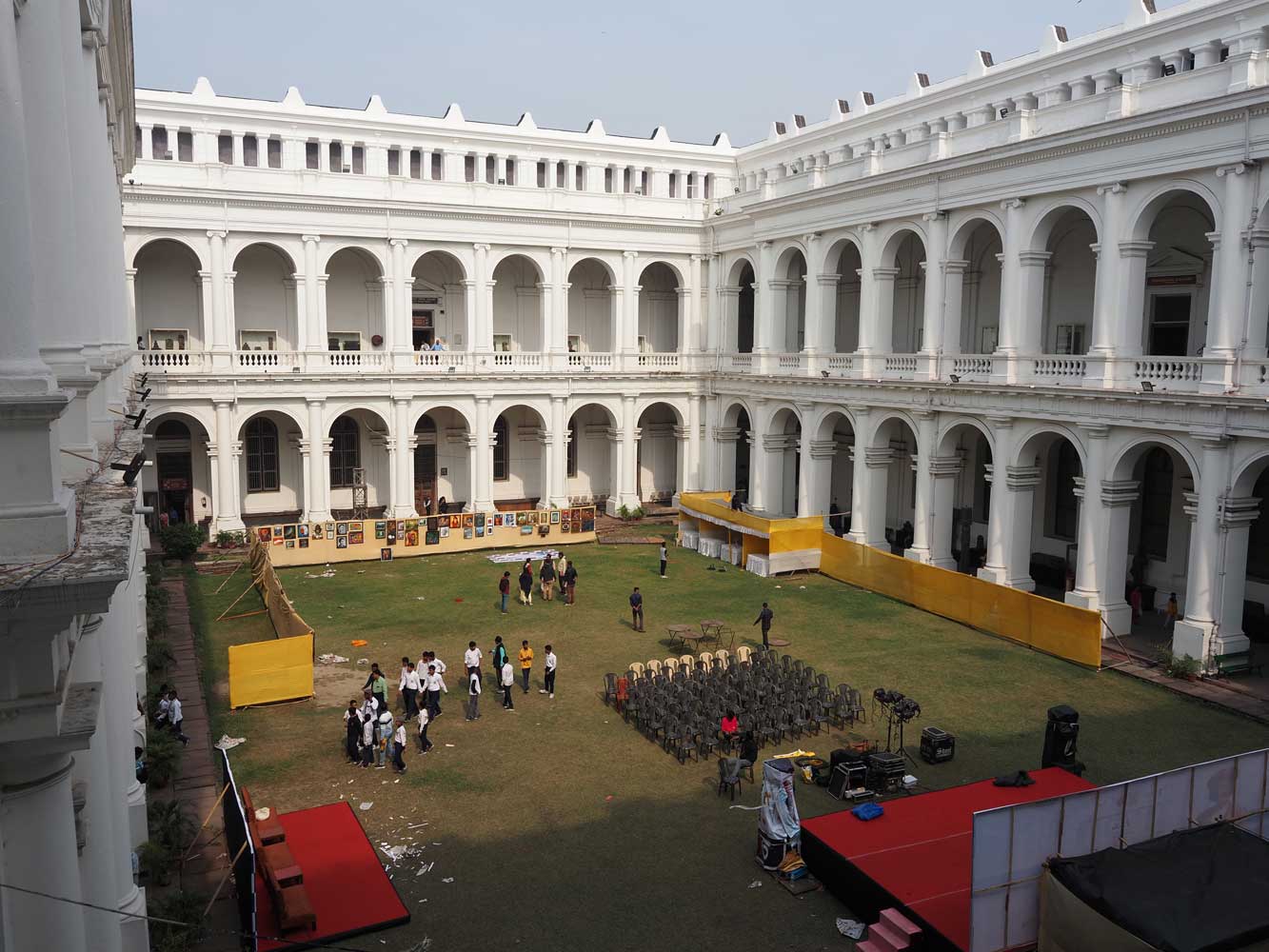
The 11th
International Kolkata Art Festival goes up in the courtyard of the Indian
Museum.
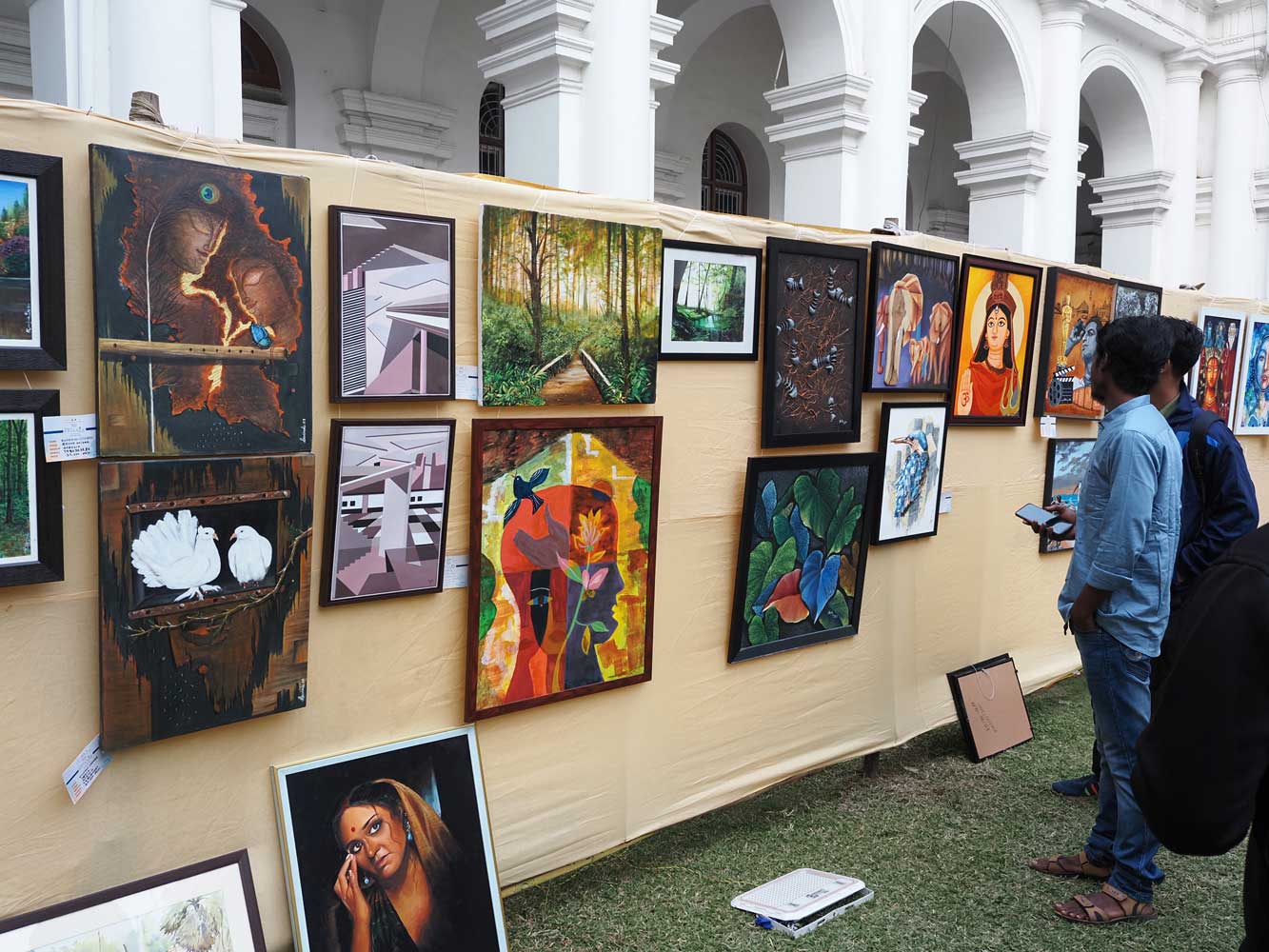
The
group show had much variety!
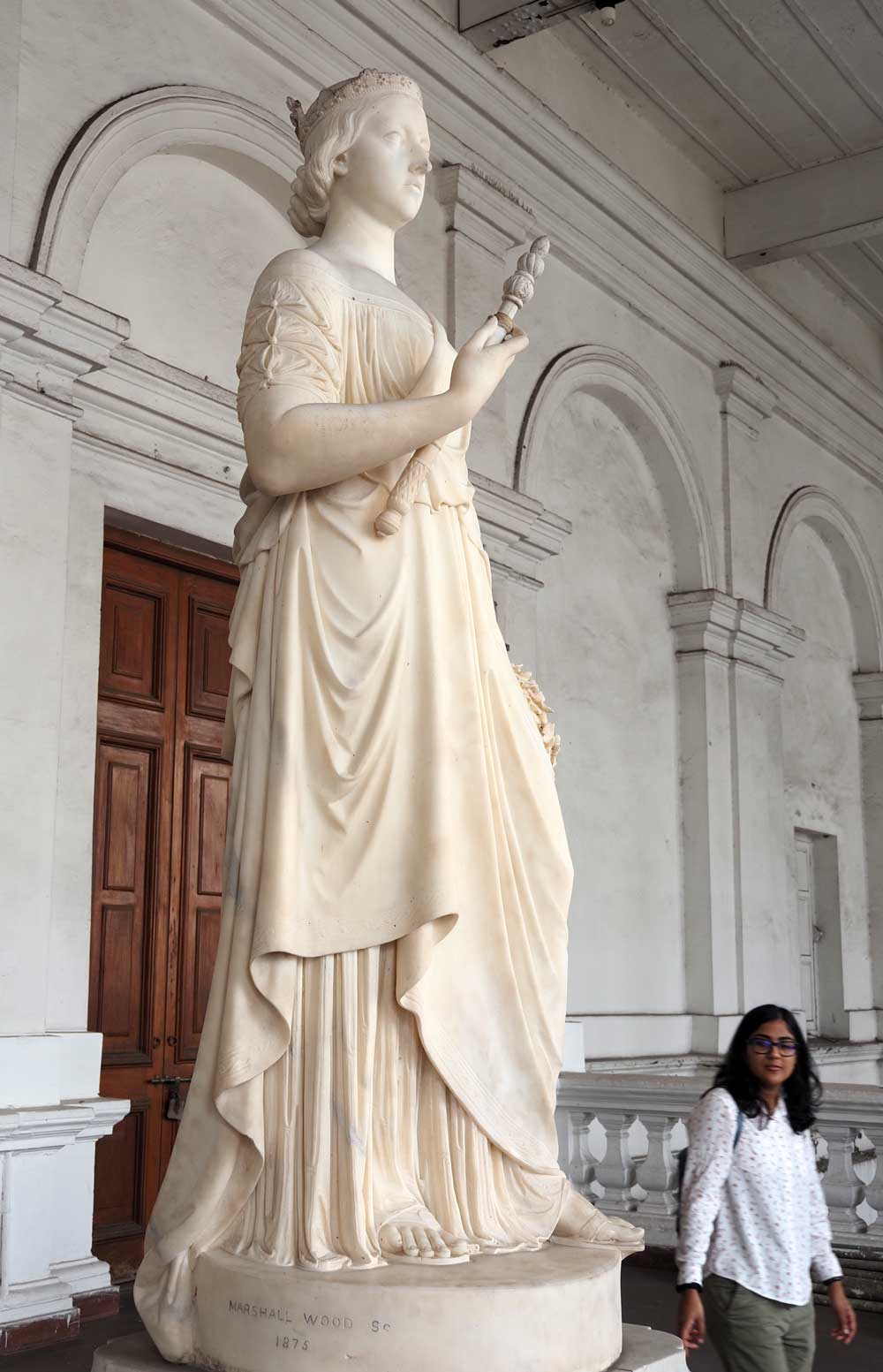
The inscription
reads: This Statue of Her Majesty Victoria Empress of India,
was Presented to
the Indian People by Mahatab Chund Bahadur, Maharaja Dhiraj
of Burdwan, in
Commemoration of Her Majesty’s Gracious Assumption of the Imperial Title, on
January 1st 1877.
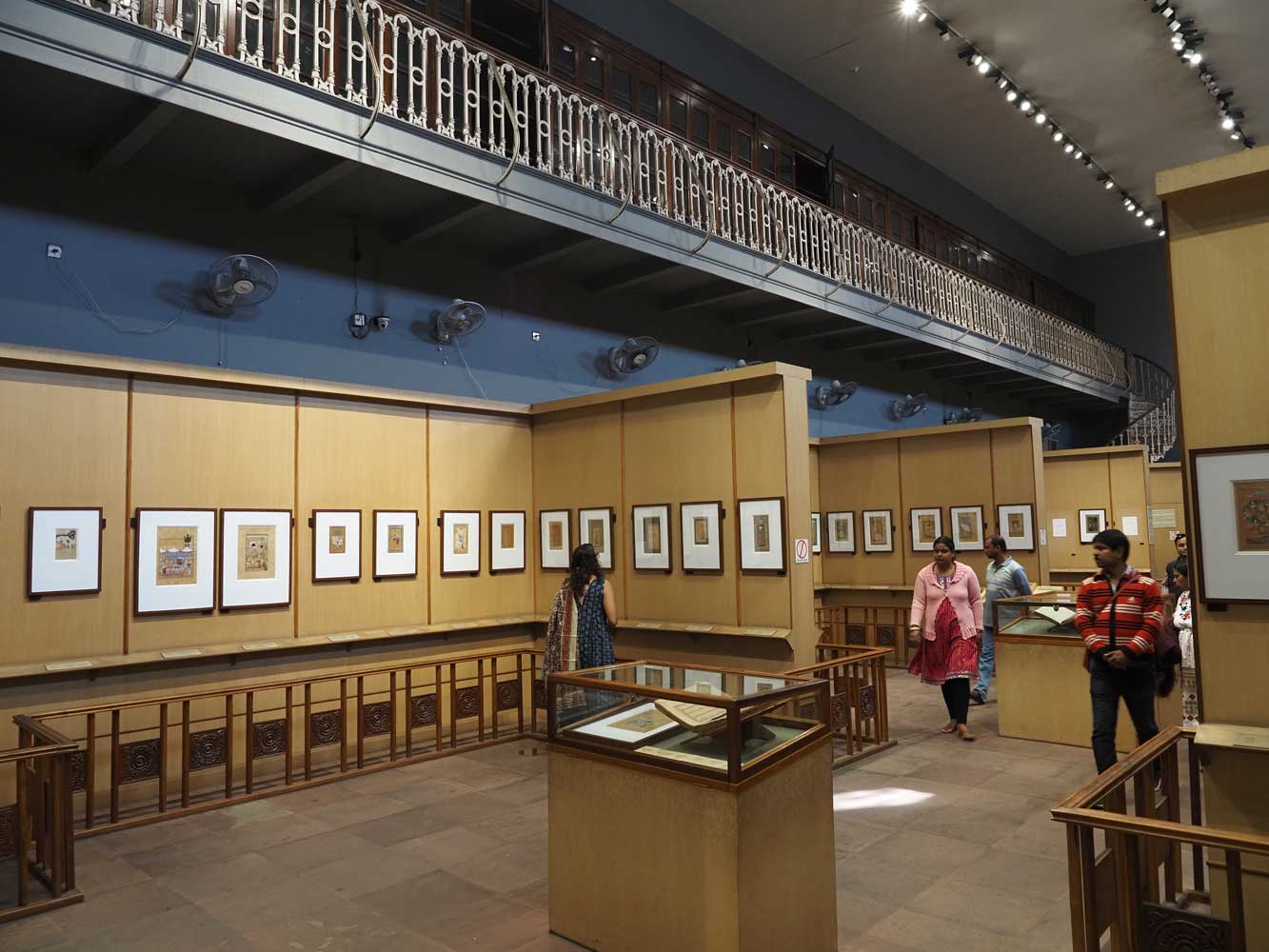
Miniature paintings
hang out here.
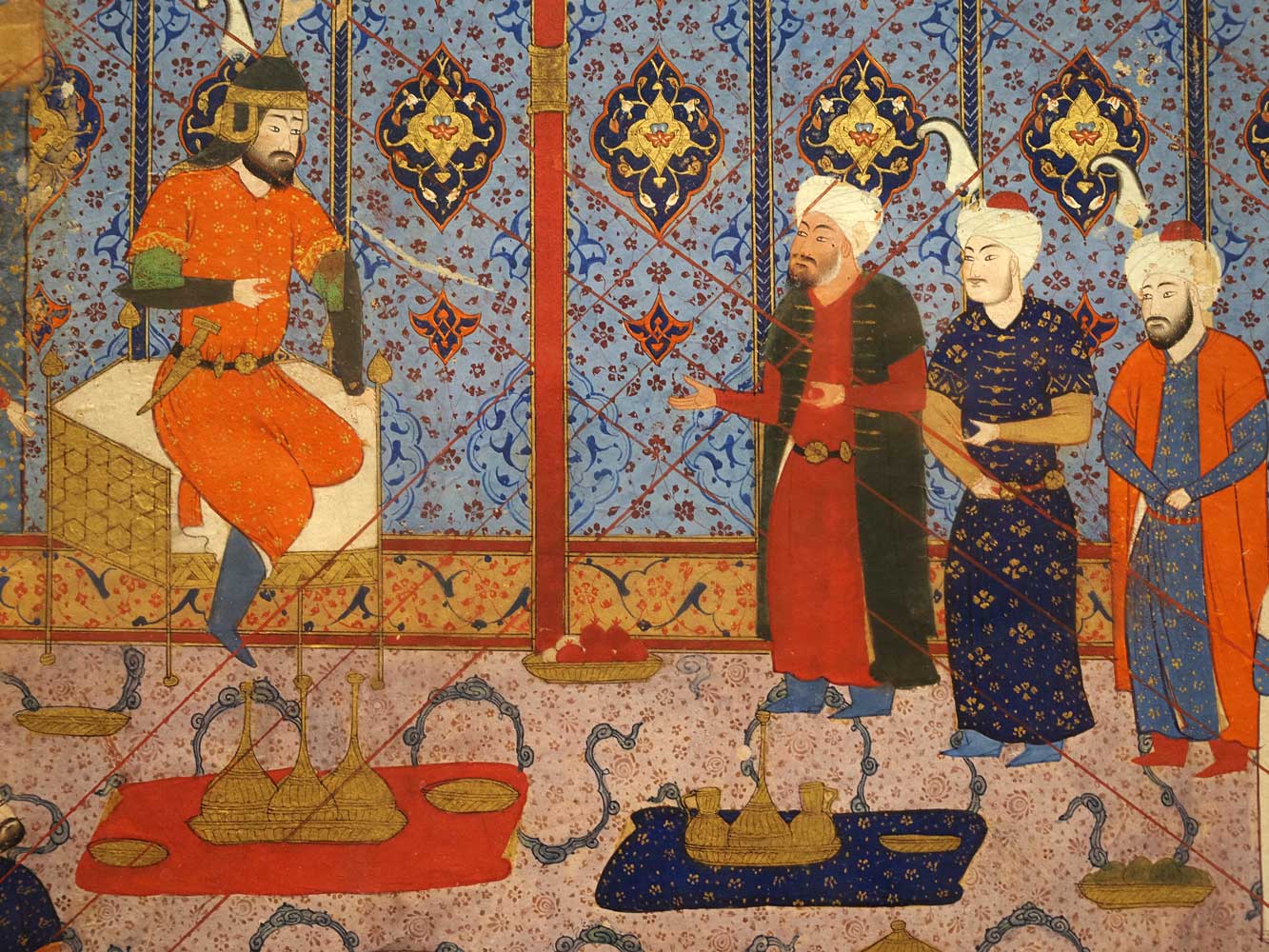
Detail of Folio from Shahnama (gouache on paper), Persian 15th C.
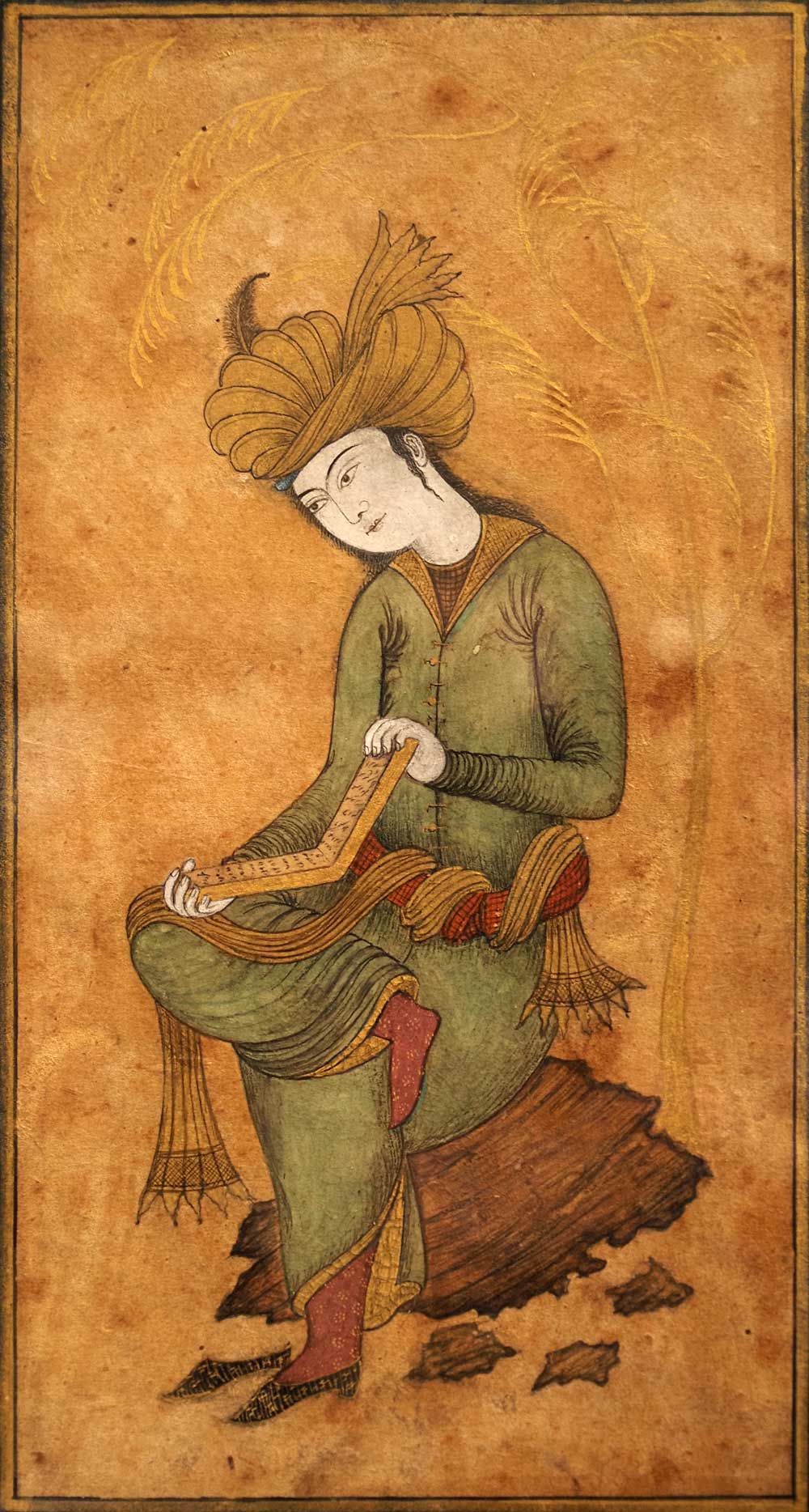
Prince Reading a
Book (gouache on paper), Persian 16th C.
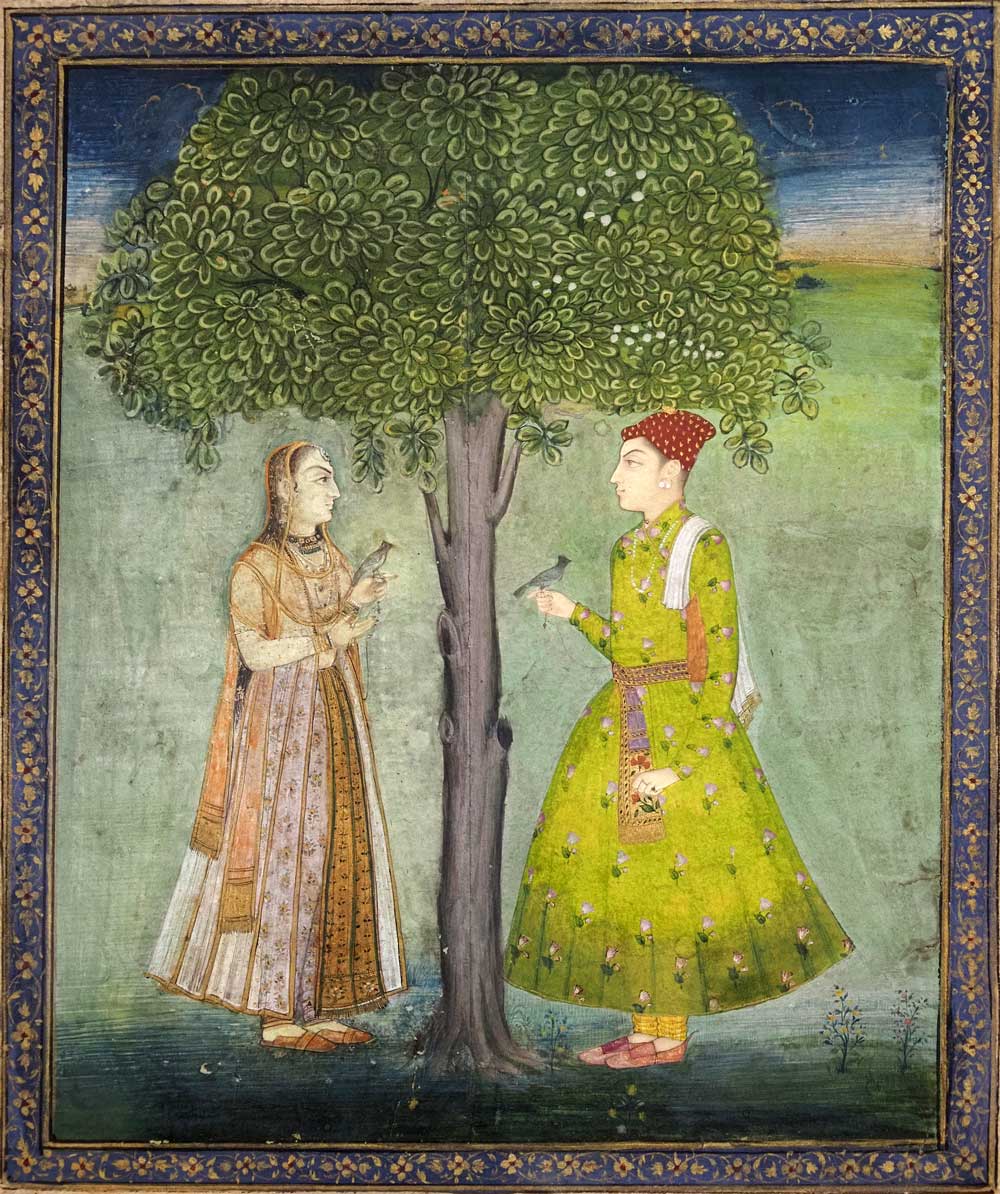
Prince and Princess
Standing Under a Tree Holding a Bird Bulbul
(gouache on paper), Provincial
Mughal 18th C.
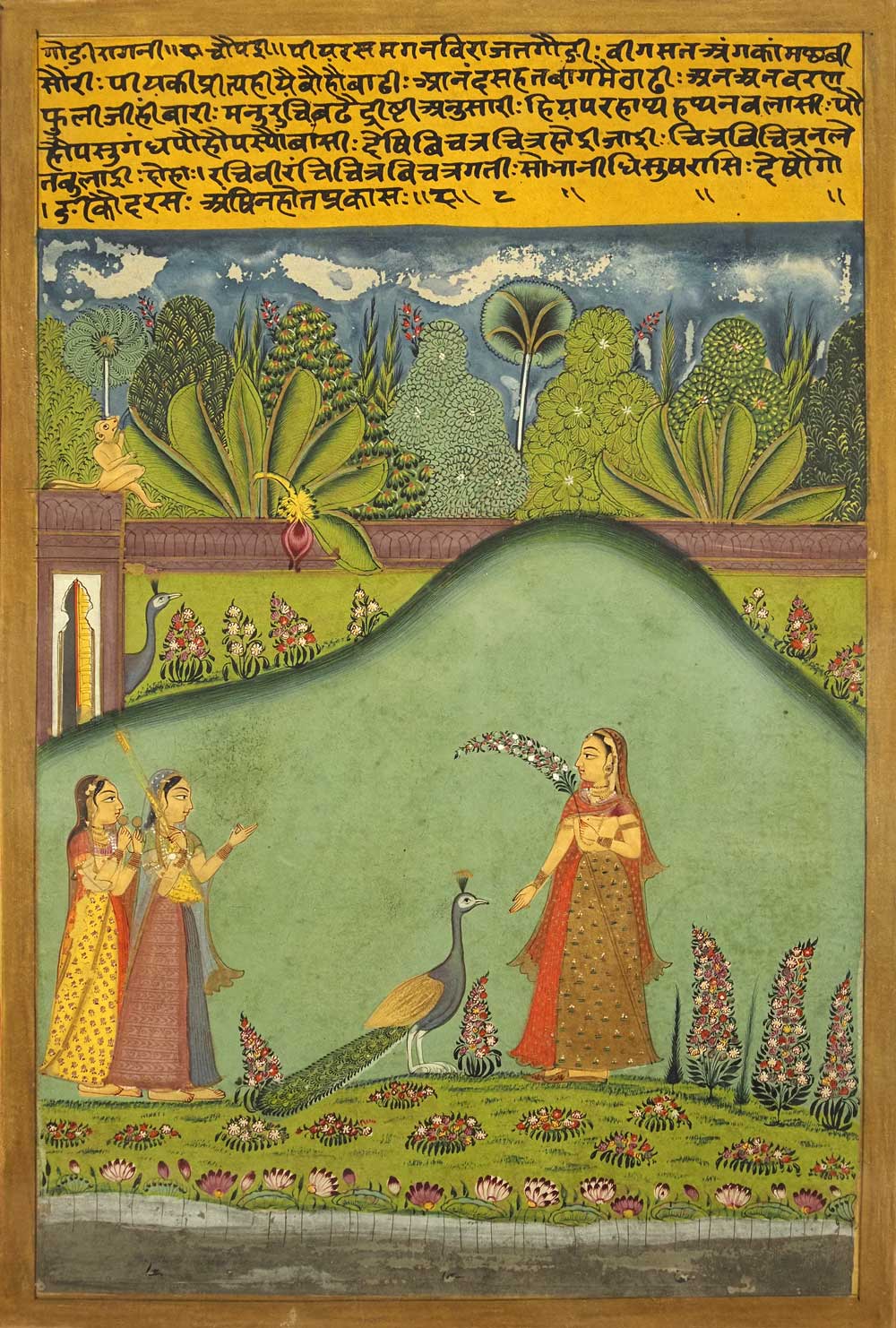
Ragini Gouri (gouache on paper), Amer, Rajasthan 18th C.
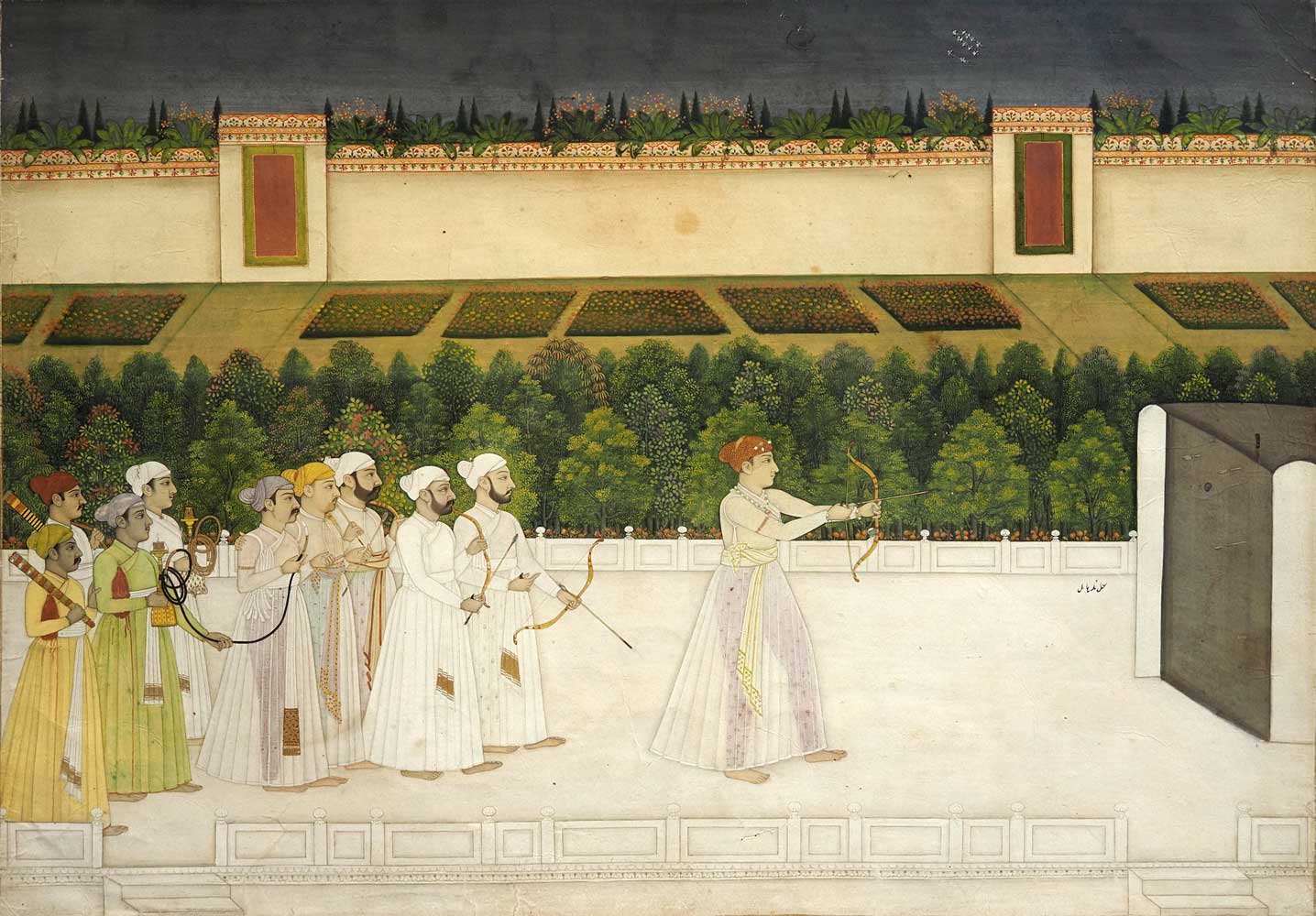
Prince Practicing
Archery (gouache on paper), Provincial Mughal 18th C.
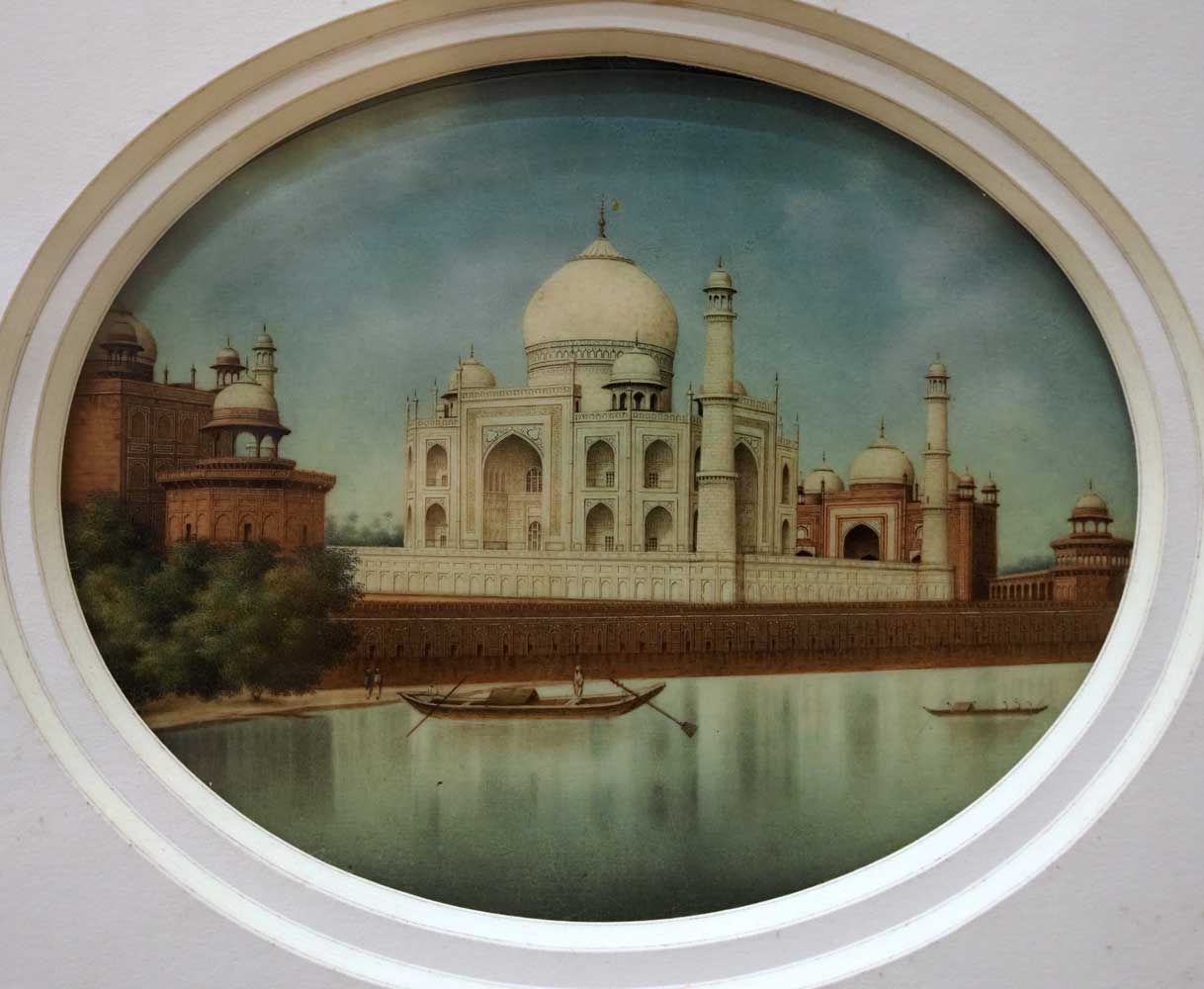
Taj Mahal
(watercolor on ivory), one of a set of Royal Dignitaries and Edifices, Delhi,
Mughal 18th C.
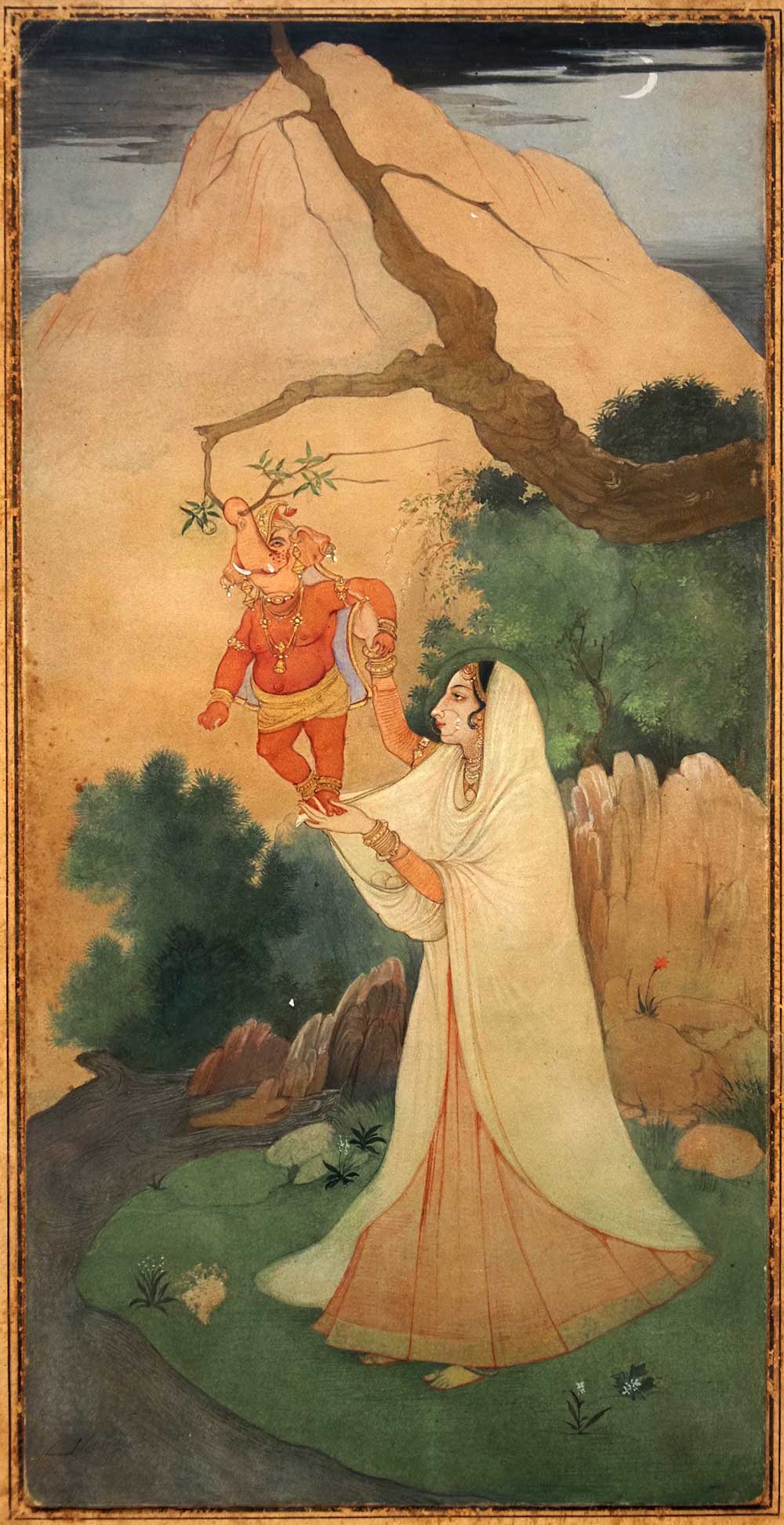
Ganesh-Janani (gouache on paper) by Abanindranath Tagore (1871-1951)
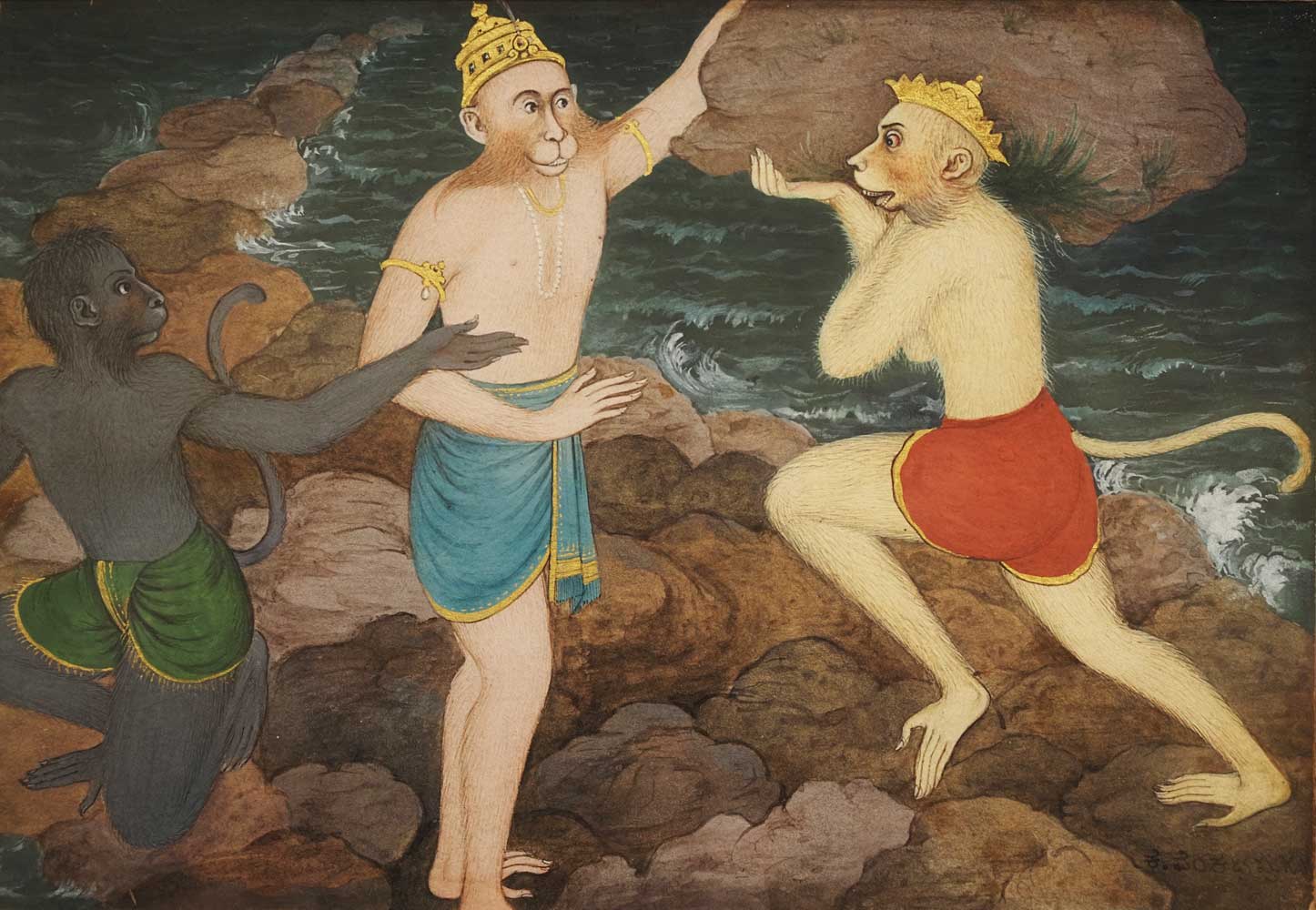
Bridging Over to
Lanka (watercolor on paper) by K. Venkatappa (1887-1965)
I took a quick look in the compact and very popular Egyptian
Gallery, centered on a mummy in a painted casket. Downstairs I entered the vast
sculpture hall of stone gods, goddesses, Buddhas, saints, and other figures from
ancient times. The adjacent Bharhut Gallery holds the red sandstone pillars,
arches, and columns of Bharhut Stupa (ca. 125 B.C.-ca. A.D. 73), brought from
Madhya Pradesh. It’s one of the oldest Buddhist narrative works, employing
symbolic motifs such as wheels, thrones, and footprints for the Buddha rather
than the human form.
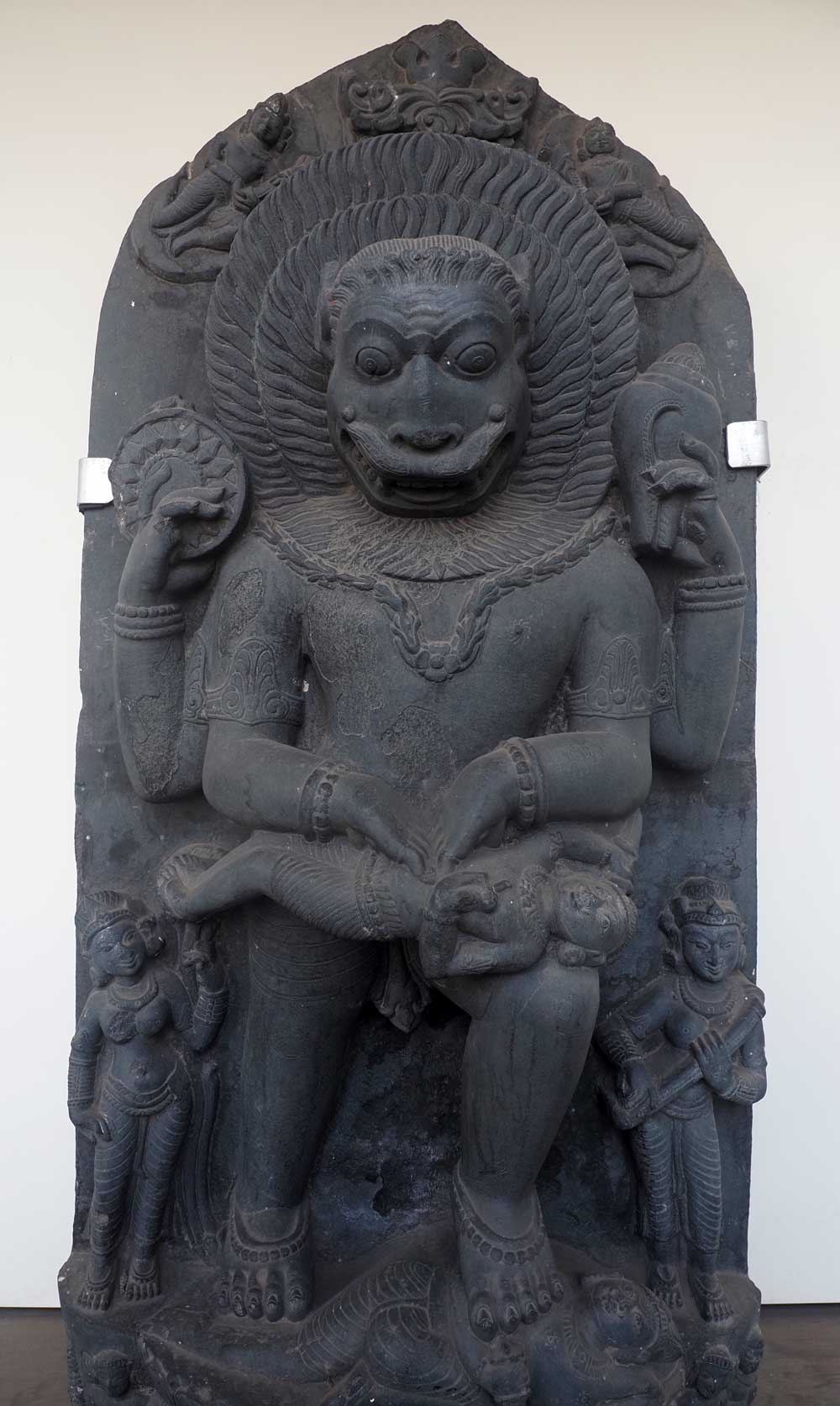
Nrisingha Avatara,
the man-lion form of Vishnu, (basalt, c. 11th C.), from Sarishadaha, West Bengal
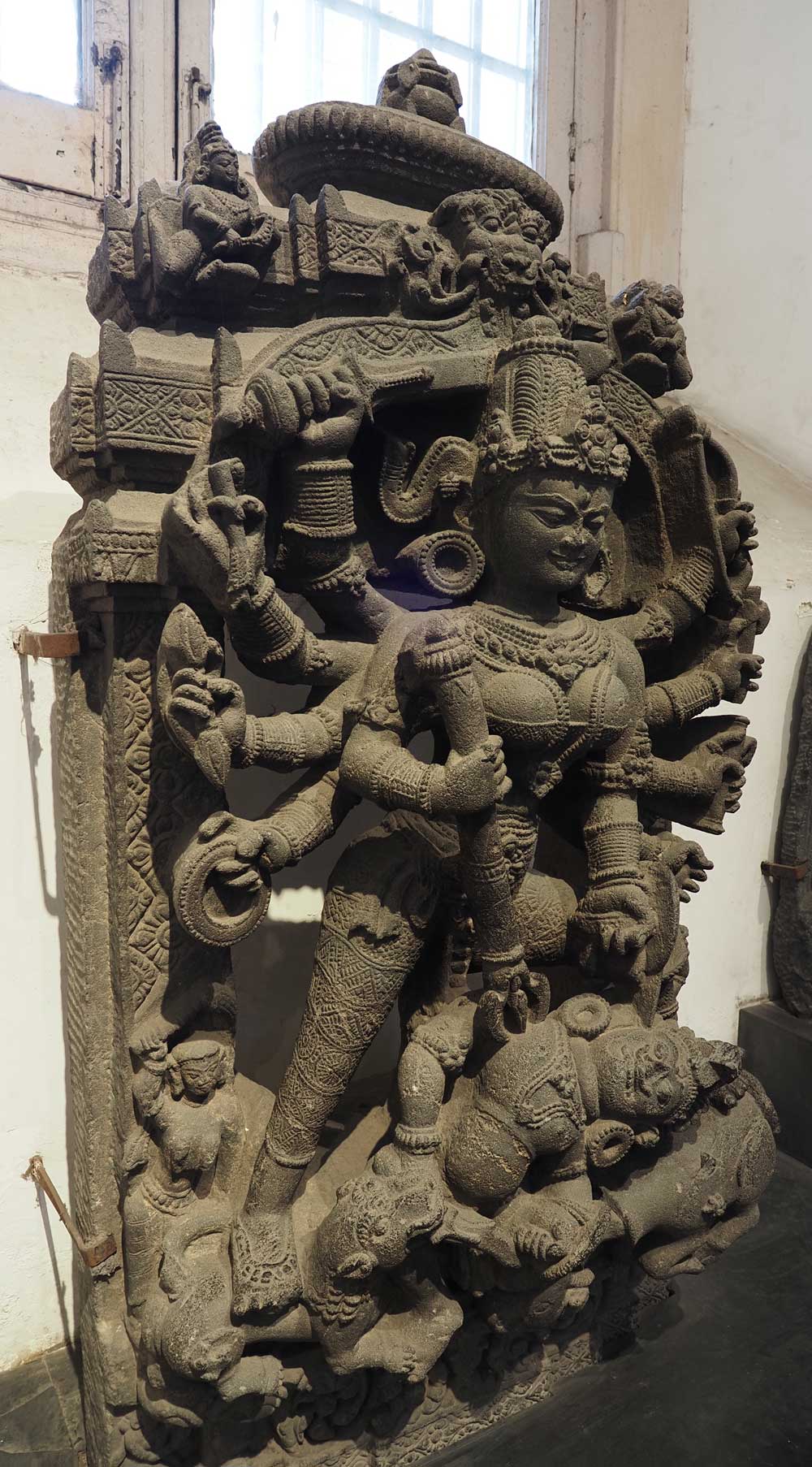
Mahisasuramardini (chlorite, ca. 12th C.) from Manbhum, Bihar
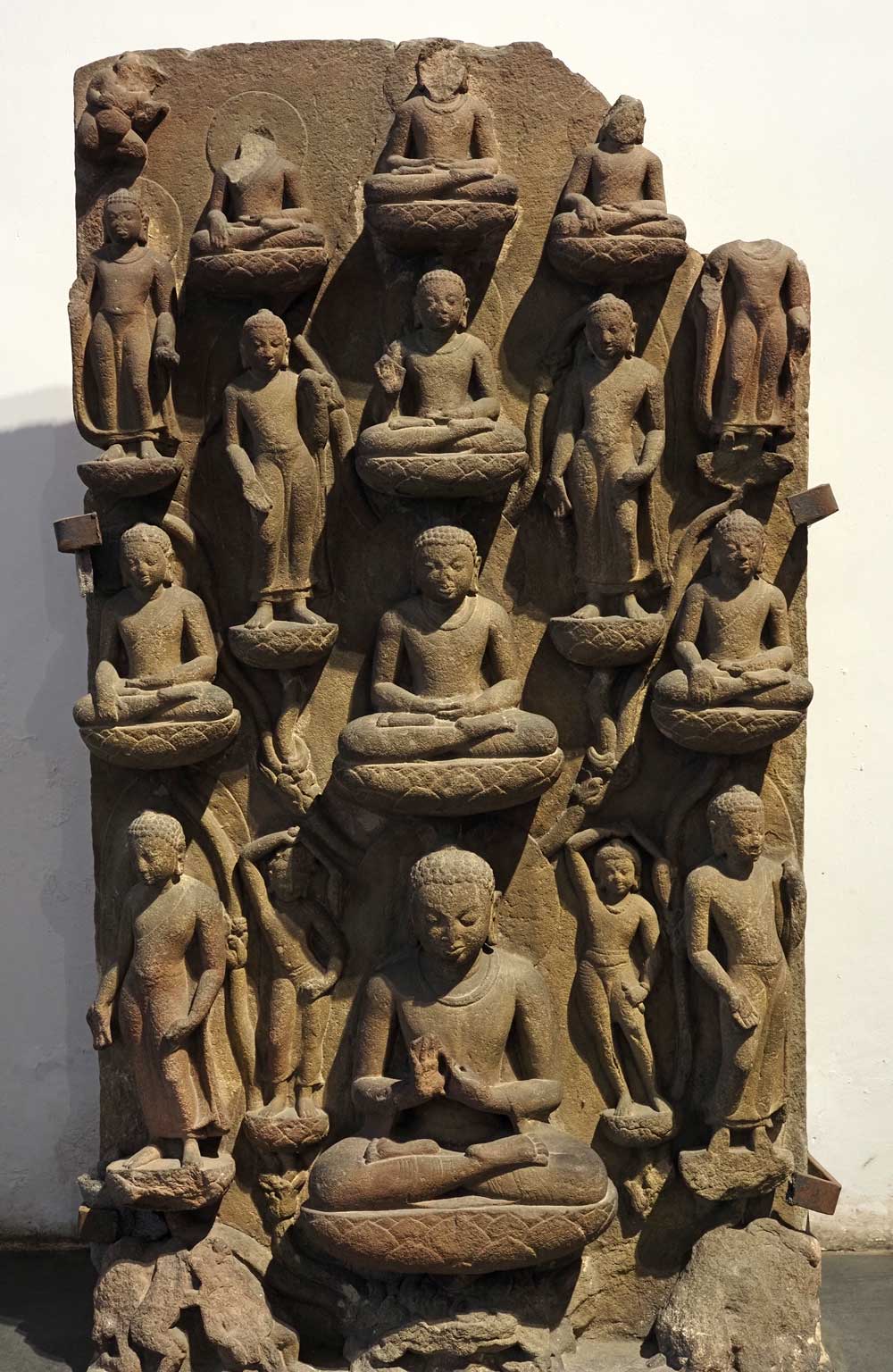
Miracles of
Sravasti (sandstone, ca. 5th C.) from Sarnath, Uttar Pradesh
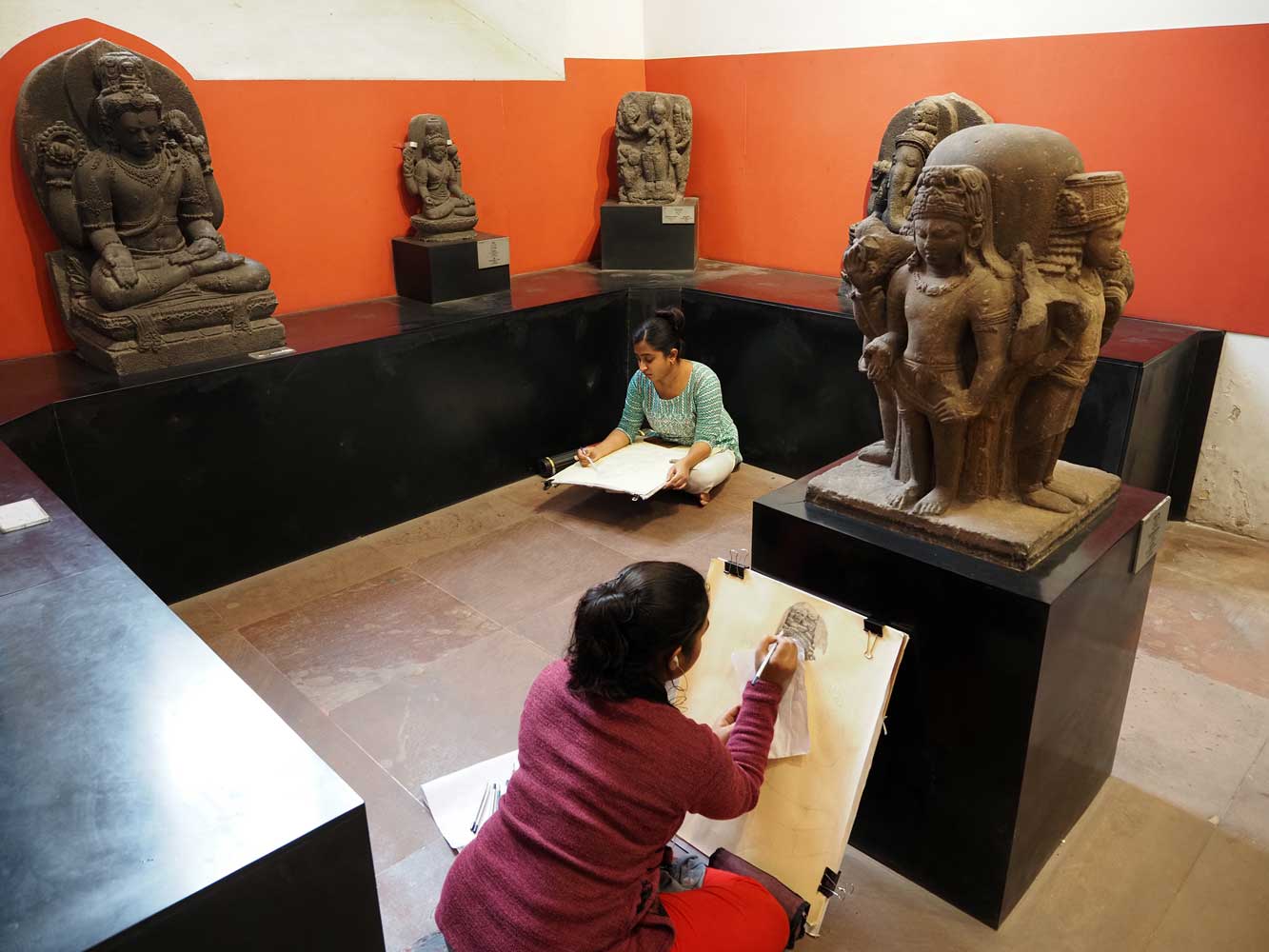
Many artists tried
their hand in the galleries of stone sculptures.
Most of the other massive halls in the museum
depict the natural world, and I especially liked the one dedicated to the use of
plants. I also enjoyed perusing the fossils and geology halls with their
old-school cabinets. I finished off the day with a malai kofta dinner at Blue
Sky Café, then swung by a cake shop for a sweet slice.
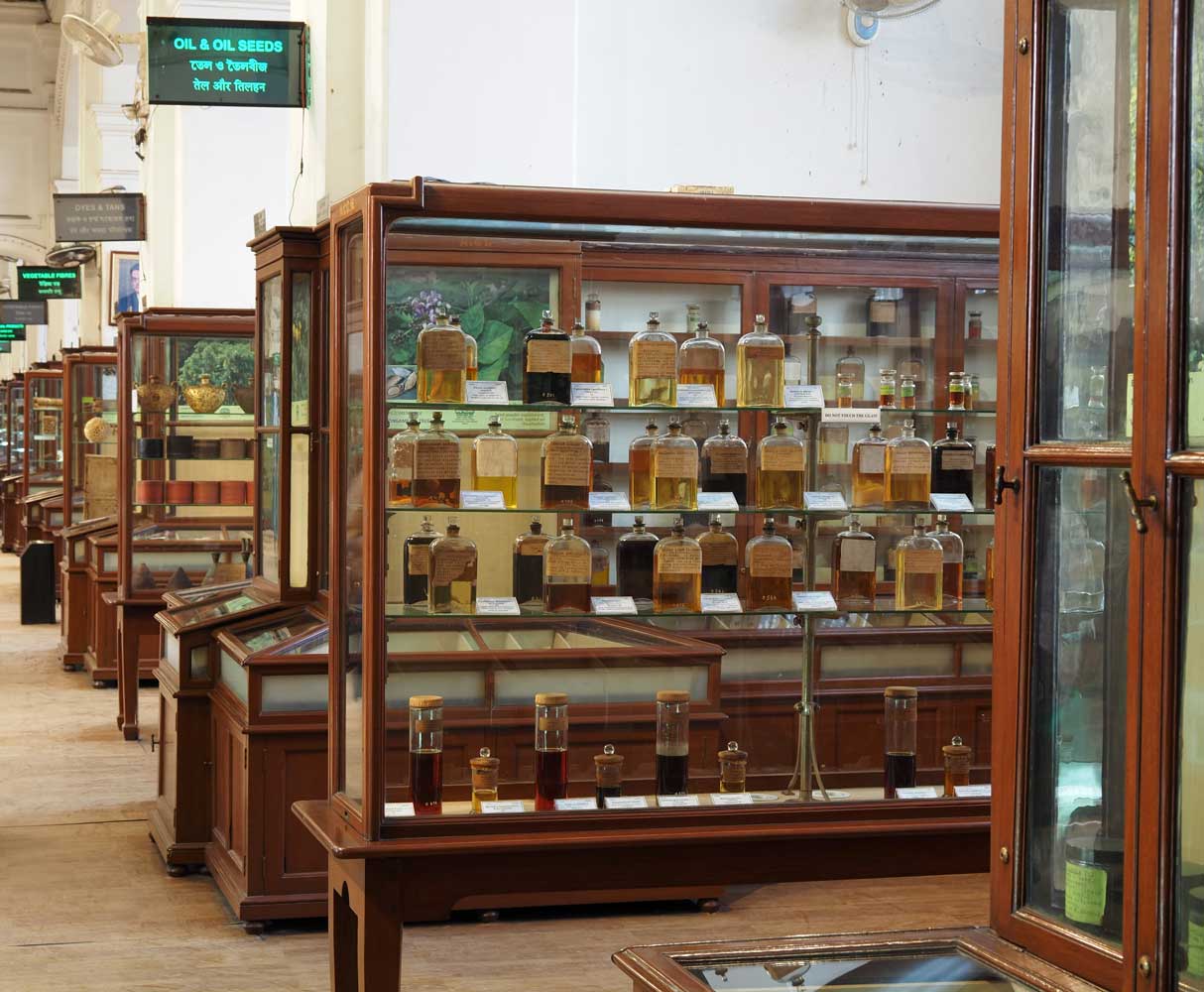
This large gallery
showed the uses of plants.
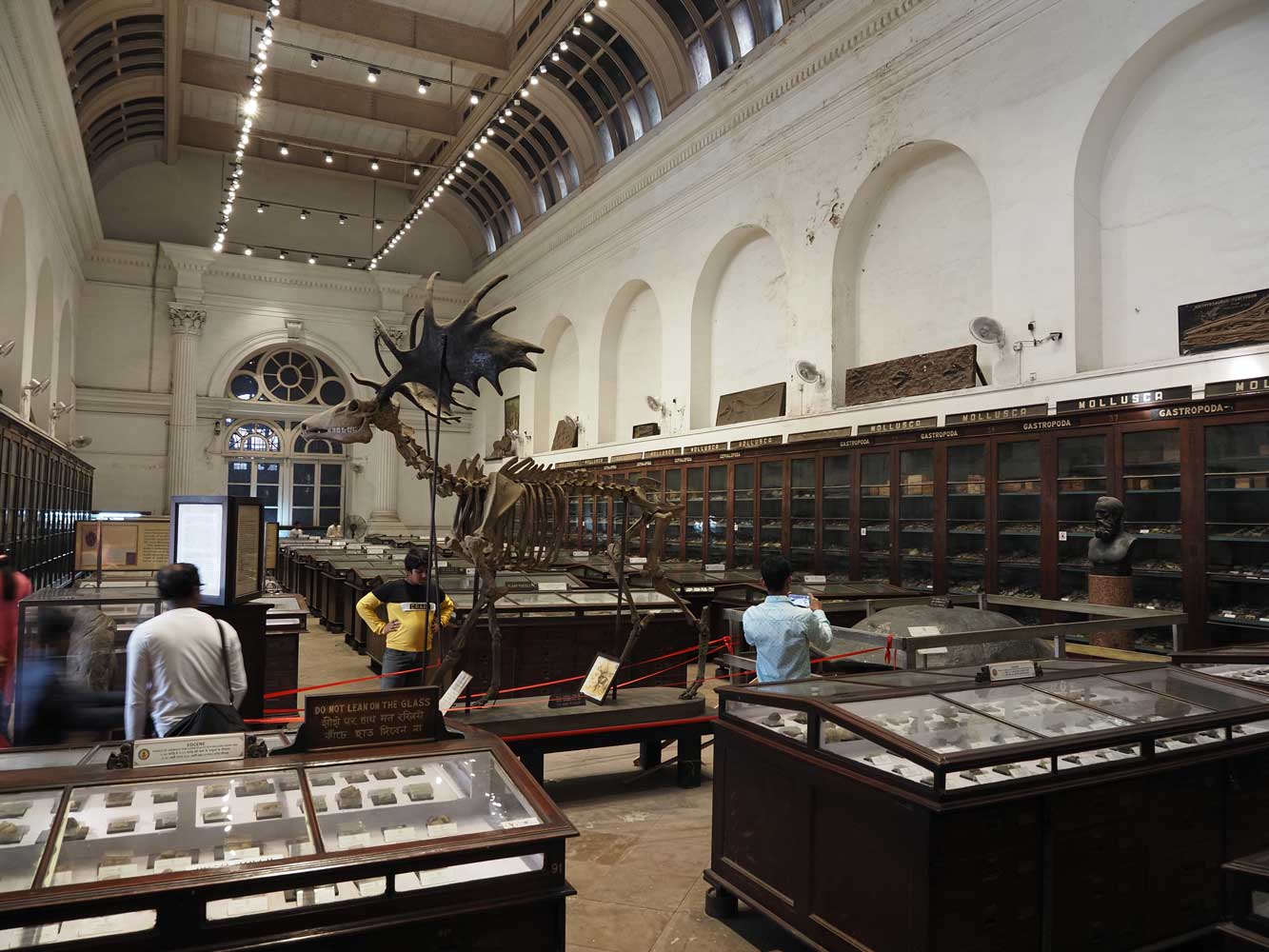
An Irish elk
(Cervus megaceros)
towers 10 feet high with an antler spread of 11 feet in the
Fossils Hall.
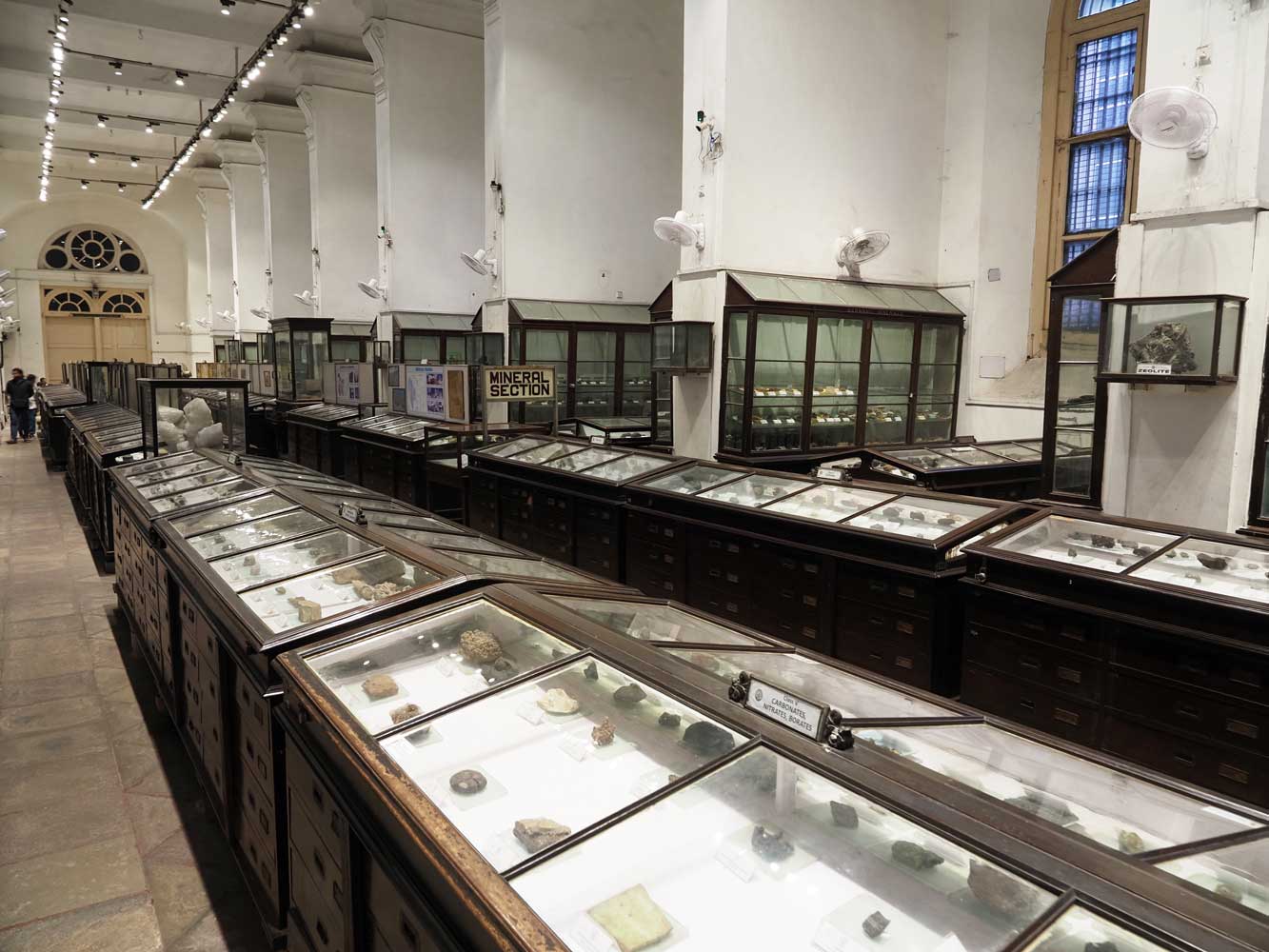
The Geology Hall offers countless specimens.
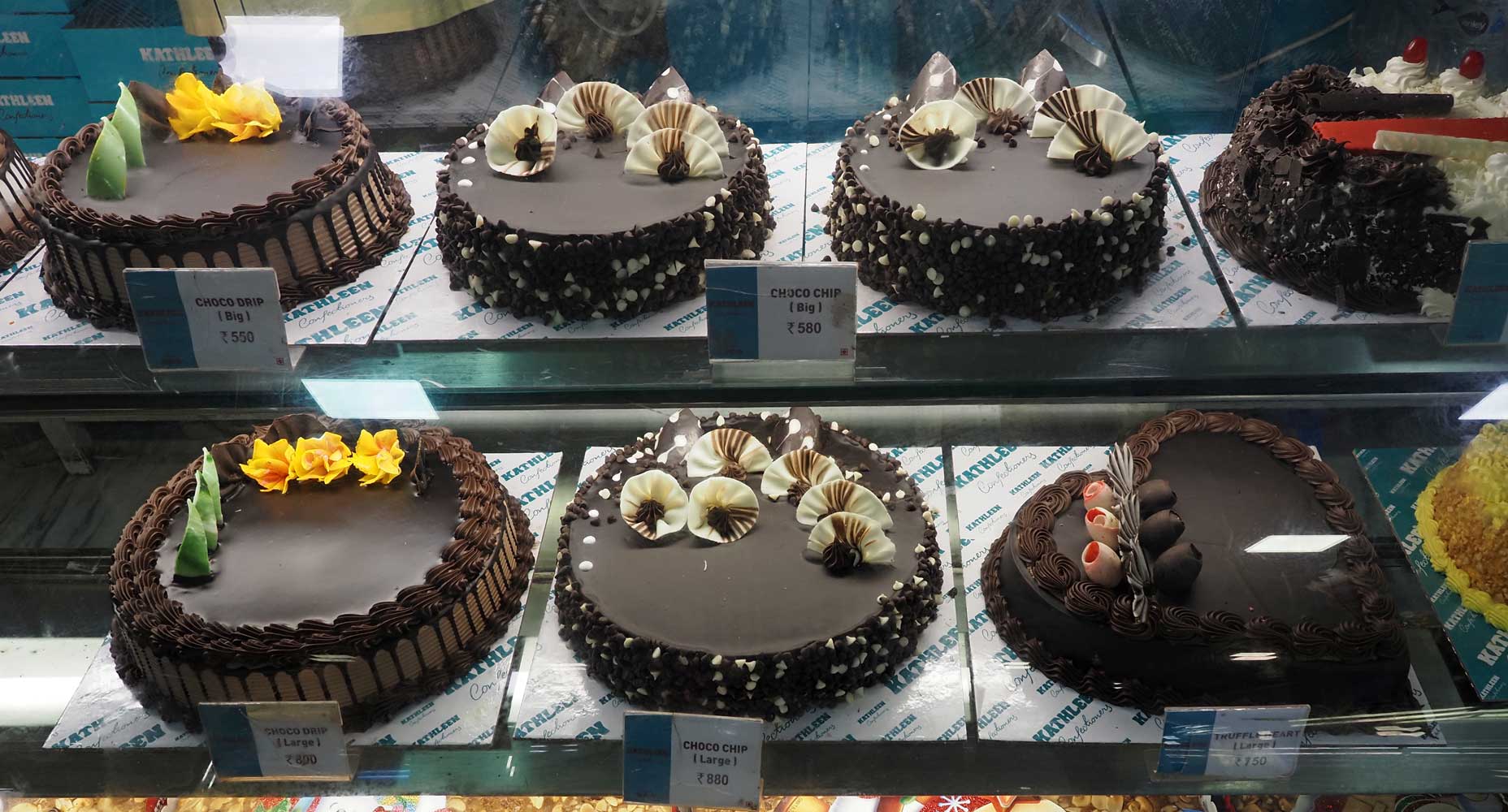
Sweet artistry in
Kathleen Confectionary
On to Kolkata: Victoria Memorial, Academy
of Fine Arts, and Indian Classical Music



















